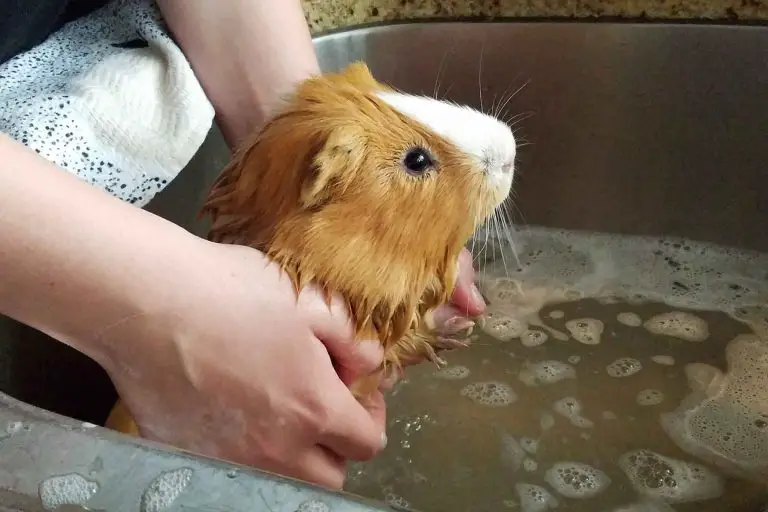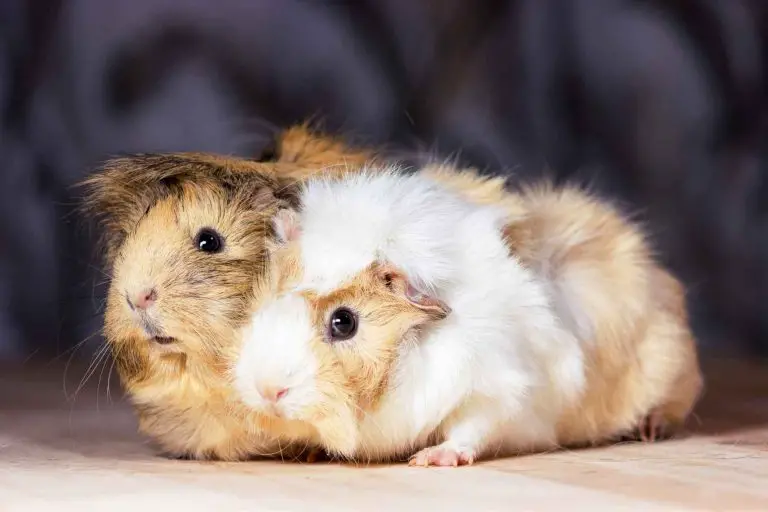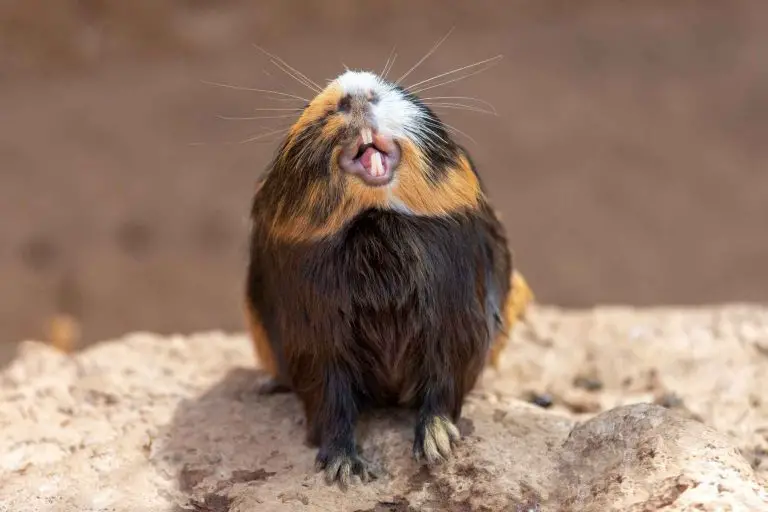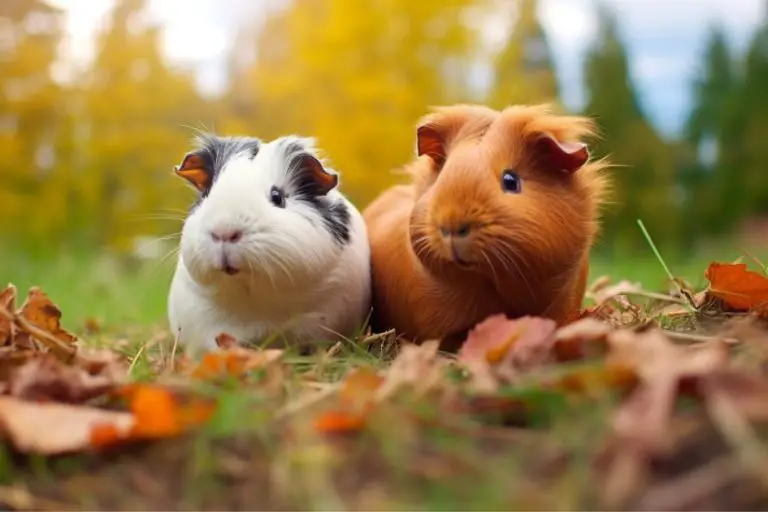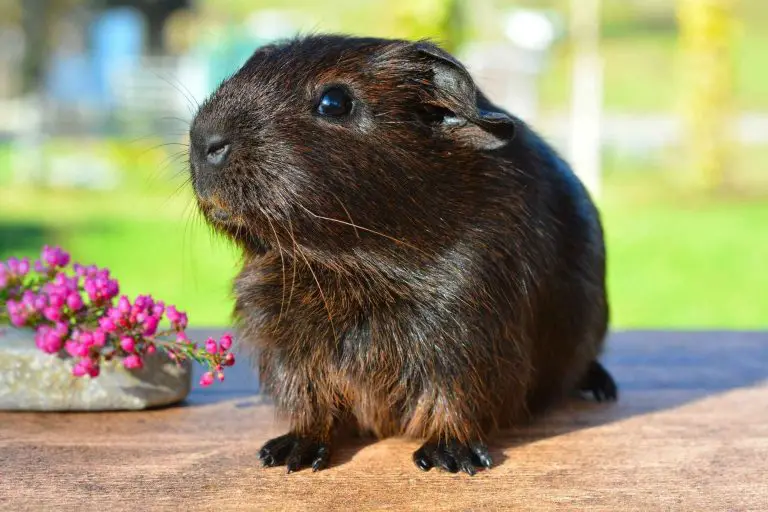Can Guinea Pigs Eat Bananas? (What About the Peel?)
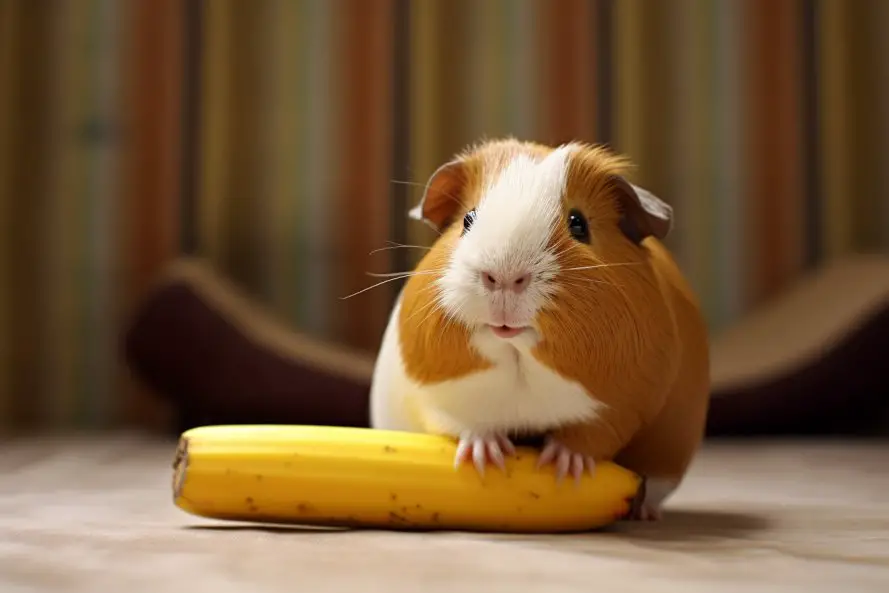
Guinea pig owners are often searching for appropriate treats to offer their beloved pets. Bananas, a popular and nutritious fruit, might come to mind as an option. But are bananas safe for guinea pigs to consume? The answer is yes, but with some precautions.
While guinea pigs can eat bananas, it is essential to understand that moderation is key. Bananas are high in sugar, which can lead to obesity and other health issues if given in large quantities. Therefore, offering small portions of banana as an occasional treat will not harm your guinea pig and can even provide them with beneficial nutrients, such as vitamins and minerals.
It’s crucial to remember that guinea pigs need a varied diet consisting primarily of hay, fresh vegetables, and specially formulated pellets to maintain their overall health. Incorporating an appropriate amount of bananas alongside other fruits and vegetables can contribute to a well-balanced diet for your guinea pig to thrive.
Health Benefits and Risks of Feeding Bananas to Guinea Pigs
Nutrients in Bananas
Bananas are a good source of various nutrients that can benefit guinea pigs, such as:
- Sugar: Provides quick energy for active guinea pigs
- Potassium: Helps with muscle function and hydration
- Fiber: Aids in digestion and prevents constipation
- Vitamin C: Essential for preventing scurvy and promoting a healthy immune system
- Calcium: Supports bone and teeth health
Besides these, bananas also contain small amounts of other vitamins and minerals that contribute to overall health.
Potential Health Concerns
While bananas can offer several health benefits for guinea pigs, it is crucial to be aware of the possible risks associated with overconsumption:
- High sugar content: Too much sugar in a guinea pig’s diet can lead to obesity and diabetes.
- Excess potassium: Ingesting excessive amounts of potassium could cause heart issues in guinea pigs.
- Low calcium levels: Bananas have a low calcium-to-phosphorus ratio, which might contribute to calcium deficiency, leading to weak bones and teeth.
- Digestive issues: Overconsumption of fiber can cause diarrhea, while inadequate fiber intake can lead to constipation.
- Bladder stones: Although not directly linked to bananas, a guinea pig’s diet should have a proper balance of calcium and phosphorus to prevent the formation of bladder stones.
To ensure a healthy diet, it is essential to monitor and limit the amount of banana fed to guinea pigs. Offering bananas as an occasional treat, rather than a staple food, can help prevent these potential health concerns.
Feeding Guidelines and Serving Size
Peel or No Peel
When it comes to feeding bananas to guinea pigs, it is generally advised to remove the peel. Banana peels can contain pesticides, even if the fruit is organic. If you choose to serve with the peel, ensure it’s from an organic source and washed thoroughly.
Frequency and Moderation
Bananas should be considered a treat for guinea pigs, rather than a staple food. Feeding bananas too frequently can lead to health problems due to their high sugar content. A safe guideline would be to offer bananas once a week or less as an occasional treat, 10-15 grams per serving.
Always opt for ripe and fresh bananas as they are easier to digest for your guinea pigs. Unripe or overripe bananas can cause digestive issues. Make sure to reduce the portions if dehydration is a concern or if you notice a change in the guinea pig’s stool.
To sum it up, bananas should be fed to guinea pigs in moderation and with their characteristics, like sweetness and the possibility of pesticide exposure, in mind. By following these guidelines, you can ensure that your guinea pig enjoys this delicious snack safely.
Alternatives to Bananas for Guinea Pigs
Other Fruits
Guinea pigs enjoy a variety of fruits, but moderation is key. Aside from bananas, you can offer blueberries, raspberries, and strawberries. These fruits are rich in antioxidants and vitamin C, which are essential for their overall health. Keep portion sizes small to prevent digestive issues and limit fruit intake to 1-2 times per week.
| Fruit | Benefits (examples) |
| Blueberries | Antioxidants, Vitamin C |
| Raspberries | Antioxidants, Vitamin C, Fiber |
| Strawberries | Vitamin C, Fiber |
Vegetables
Introduce a range of vegetables into your guinea pig’s diet to offer diversity and nutrition. Leafy greens such as kale, spinach, and Swiss chard are rich in vitamin C, calcium, and other nutrients. Additionally, bell peppers, carrots, and cucumbers can provide fiber and vitamins for your guinea pig.
| Vegetable | Benefits (examples) |
| Kale | Vitamin C, Calcium |
| Spinach | Vitamin A, Vitamin C |
| Swiss Chard | Vitamin C, Fiber |
| Bell Peppers | Vitamin C |
| Carrots | Vitamin A, Fiber |
| Cucumbers | Hydration, Vitamin C |
Other Foods
Apart from fruits and vegetables, it’s crucial to have a balanced diet for your guinea pig. High-quality hay is the main staple of their diet, providing essential fiber for digestion. Guinea pig pellets offer an additional source of nutrition, while occasional treats like store-bought snacks or homemade nibbles can be given sparingly.
- High-quality hay: Provides essential fiber for digestion
- Guinea pig pellets: Balance nutritional needs
- Occasional treats: Offer variety and enrichment
Important Considerations for Guinea Pig Diet
Maintaining a Balanced Diet
Guinea pigs are herbivores and rely on a diet that provides essential minerals, vitamins, and nutrients. A balanced guinea pig diet should consist primarily of hay, which offers the necessary fiber to support their digestive system. Additionally, water must always be available for your pet.
Pellets can also be included in their diet, providing essential minerals and vitamins. When selecting pellets, look for those that offer a high nutritional value without added sugars or artificial additives:
- High in vitamin C, essential for immune system support
- Limited carbohydrates and sugars
- Avoid protein-rich pellets to prevent bloat
Fruits and vegetables are an important part of a guinea pig’s diet as well, offering antioxidants and other nutritional benefits. In moderation, bananas can be included in their diet but should be offered in small quantities due to their high sugar content.
Monitoring and Consultation with a Vet
It is crucial for pet owners to monitor their guinea pig’s diet closely to prevent digestive problems, vitamin deficiencies, and other health issues. Introducing new foods gradually and keeping an eye on your pet’s stool and overall health will ensure that any issues are caught early and addressed promptly.
Consulting with a veterinarian is also important, as they can provide further guidance on appropriate dietary choices for your guinea pig based on their unique needs. This may include recommendations on supplements or personalized dietary planning.
| VETERINARY CONSULTATION | IMPORTANCE |
| Provide guidance on food choices | Offer expert advice based on individual pet needs |
| Recommend supplements | Address nutrition gaps |
| Monitor overall health | Early detection of issues related to diet |
In conclusion, providing a balanced diet, monitoring your pet’s health, and consulting with a veterinarian are essential components of ensuring your guinea pig remains happy and healthy. Remember to include hay, water, pellets, and moderate amounts of fruits and vegetables, including bananas, to create a well-rounded diet that supports their immune system and digestive health.

